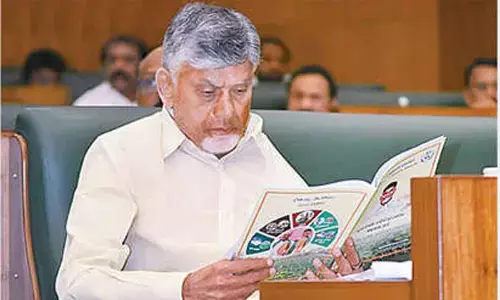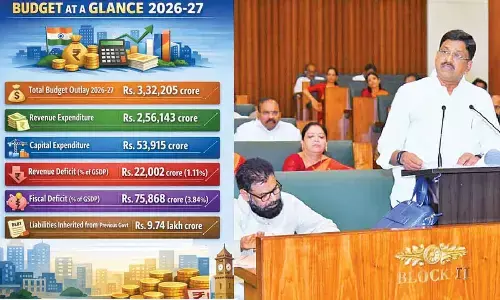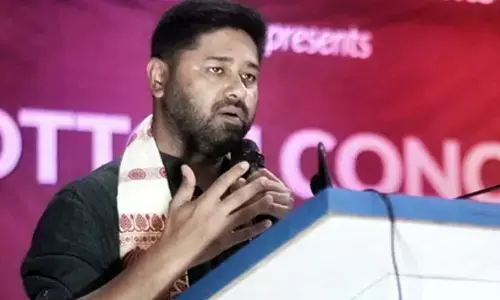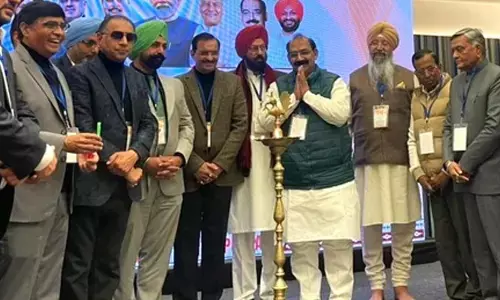Coronavirus leads to drop in cancer consultation
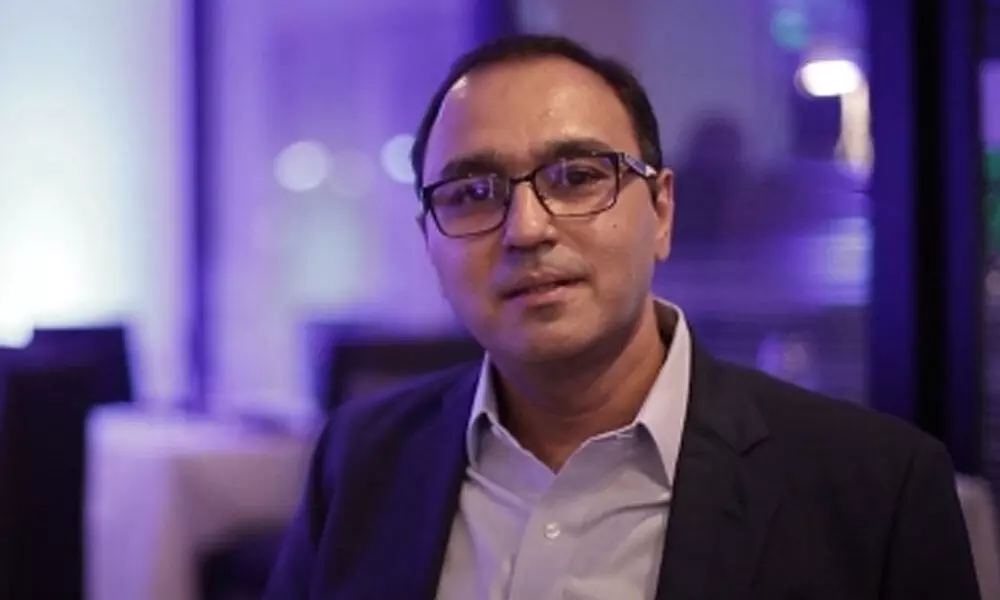
Dr Vishal Rao
The ramifications of the Covid pandemic on the healthcare system will be felt for a long time to come
Bengaluru: The ramifications of the Covid pandemic on the healthcare system will be felt for a long time to come. For instance, there is a drop in cancer consultations as people are flocking to hospitals only for emergency cases.
Dr Vishal Rao, Regional Director-Head & Neck Surgical Oncology and Robotic Surgery, HCG Cancer Hospital, stated that the lockdown imposed to prevent spread of the virus has also had an impact on cancer care, since Bengaluru is a major destination for cancer treatment for patients from all the districts of Karnataka and neighbouring States.
"When the lockdown was announced, many such patients were unable to travel home from Bangalore after cancer treatment, while those scheduled for chemotherapy or surgery found it difficult to travel to Bangalore, as all modes of transportation were suspended. The situation was similar in Delhi, Chennai, and Maharashtra, where premier cancer hospitals are situated. Since health care has been redirected to optimally manage the pandemic complications in Bangalore, routine clinical services including oncology have been relegated to the background. Patients are finding it difficult to find transportation to reach health care facilities. They are also scared of contracting the infection in hospitals, not realising that cancer spread and the resultant poorer prognosis may be far more dangerous," he explains.
The doctor draws the attention saying that as algorithms have been suggested to stratify patients requiring head and neck cancer surgery in the Covid-19 era, it is paramount that we do not lose sight of the severe upstream impact leading to delayed diagnosis or follow-up of survivors.
"In fact, this inordinate delay in the examination and diagnosis of this ailment has severely affected mortality and other outcomes, particularly for patients with cancer. Still, early diagnosis of cancer, although critical in every respect, is mostly dependent on the patient's willingness to consult physicians and attend routine examinations."
"After imposing a nationwide lockdown for two months, India underwent three phases of unlocks: Unlock 1 from June 1 to June 30, 2020; Unlock 2 from July 1 to July 31, 2020; and Unlock 3 August 1 to August 31, 2020. The lockdown or unlock stipulations have significantly affected the Indian cancer care system. As an example, several of our 24 oncology centers across India (HCG Cancer Hospitals) witnessed a cumulative drop of new consultations (49.1%) immediately after the lockdowns were imposed. Interestingly, we noticed a gradual rise (9.9%) in new consultations once the extension of lockdown was announced," Rao further states.
However, once the unlock was enforced, there was a progressive decline in new consultations (12.1%).
Rao feels that in hindsight, the reasons for this pattern can be gathered with reasonable accuracy. "Initially, in the early phase of the pandemic, the fear and panic linked with announcement of lockdown and virus spread might have forced patient to postpone their heath check-ups. With continuous imposition of restrictions and prevailing uncertainties, the patients summoned the courage to visit the hospitals and to get examined," he explains.
AIIMS director Dr Randeep Guleria had recently stated that those patients with mild symptoms are doing more harm by exposing themselves to radiation generated by a CT scan as this escalates the risk of cancer.
However, Rao says the chance of developing cancer as a result of a CT scan is thought to be less than 1 in 2,000.
"The amount of radiation involved is estimated to be around the same as a person would be exposed to in a space of between several months and several years of natural exposure in the environment. There needs to be a reason and indication to do a CT scan. It is always better to avoid unnecessary exposure to radiation through CT scan," he adds.
Given the severity of the impact of Covid on the healthcare system, there could be a severe pressure on India's healthcare system that is battling the pandemic, presently.
"The Covid-19 pandemic has caused unprecedented impact across the globe, severely affecting the national health systems, as well as mobility and commuting. Our recent study using data of HCG Cancer centres across India showed a cumulative drop of new consultations (49.1%) immediately after the lockdowns were imposed during the first wave and unfortunately it is more accentuated during the second wave.
The lockdown or unlock stipulations, anxiety, Covid fatigue all are contributing further for fewer consultations.
As the pandemic appears still far from declining, the healthcare system demands immediate attention to quickly help restore it to normalcy," Rao elaborates.
The gravity of the issue was brought before the government. The issue was tested using data from several of 24 oncology centers across India (HCG Cancer Hospitals) and published in the reputed journal (JCO Glob Oncol) to gain attention from the government.
"We have suggested a couple of key measures: (1) individuals with suspicious symptoms need to be proactively encouraged to consult their general practitioners and (2) the medical fraternity should provide timely support and guidance to policymakers for designing and delivering public awareness programs," Rao reveals.
Rao cautions if the delay in early consultations continues unabated, it may negatively influence early cancer detection, resulting in increasing tumor burden and a likely upstaging of TNM classification, negatively affecting outcomes and overall quality of life of patients with head and neck cancer.


